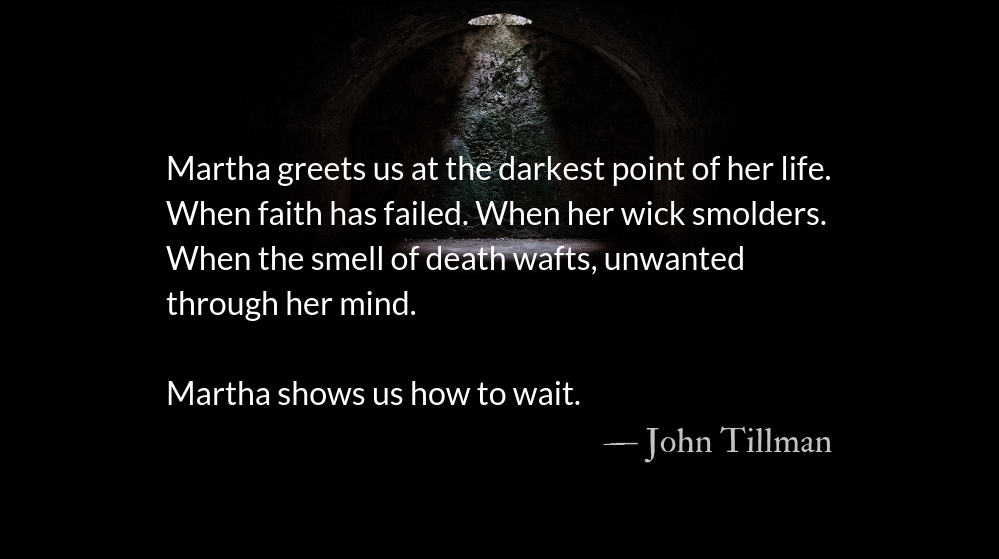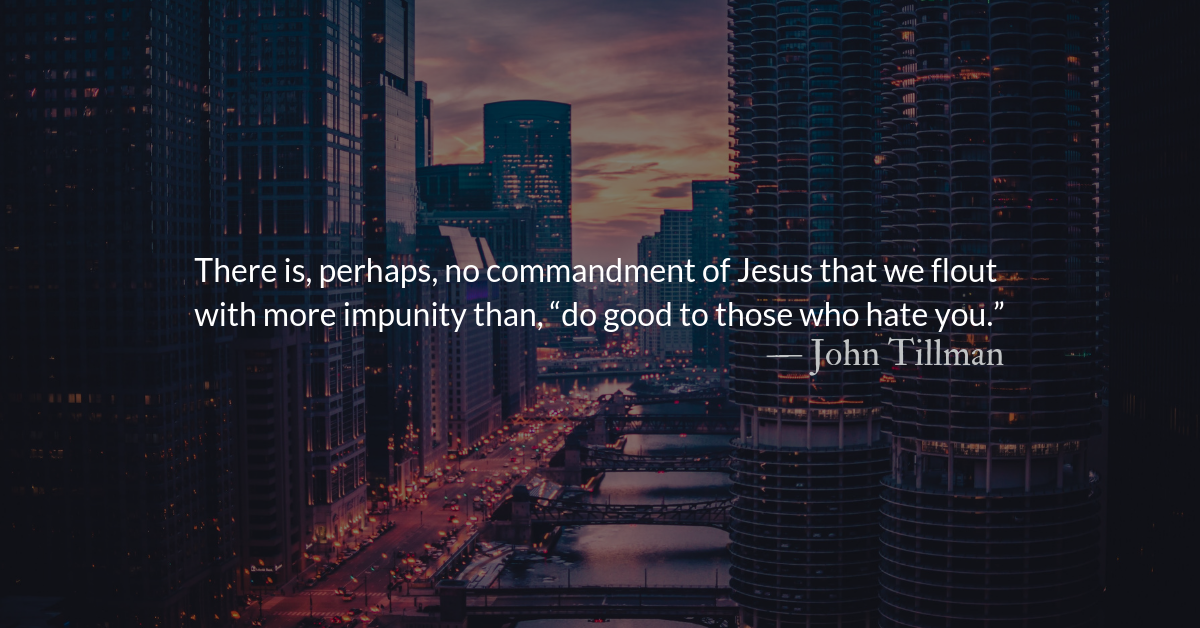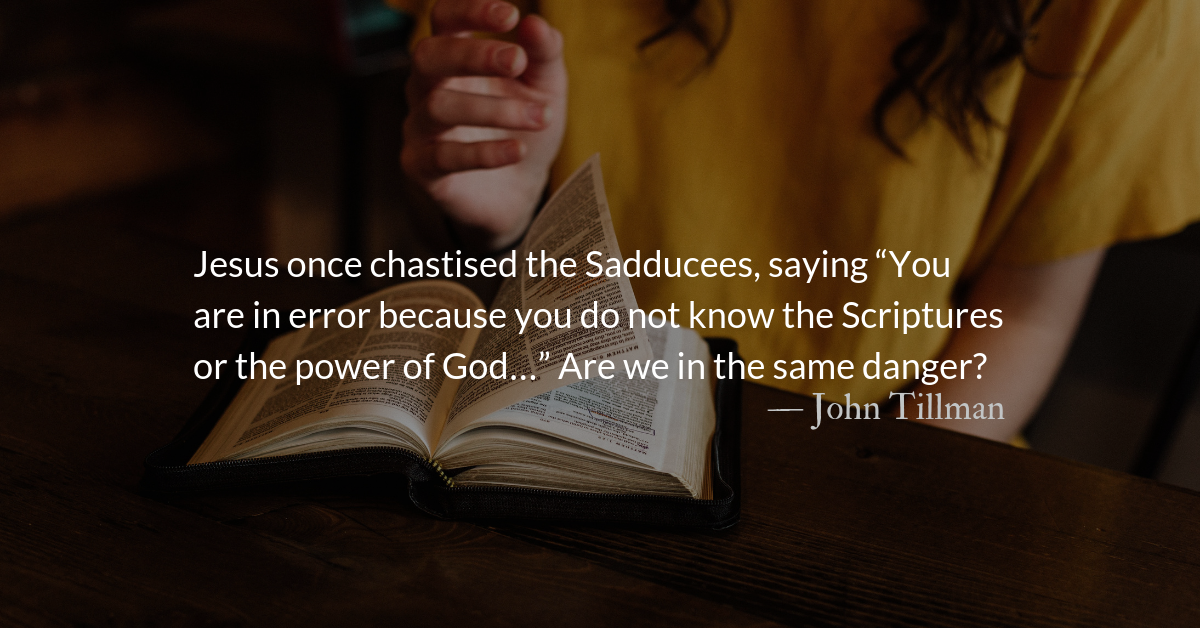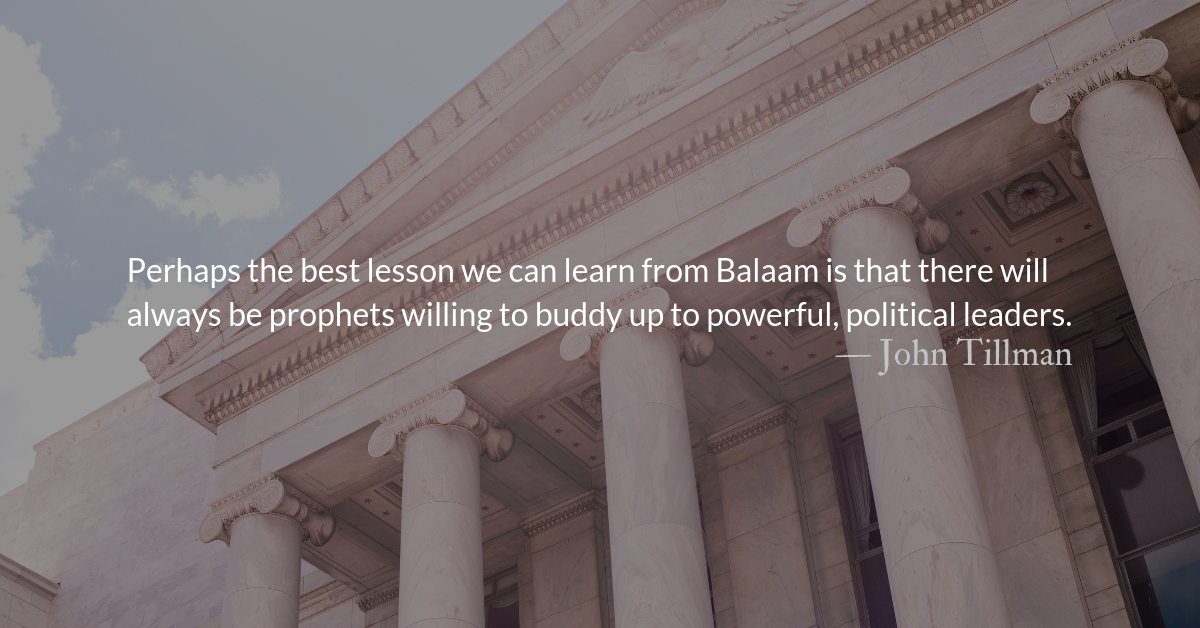Selected by reader, Michelle Bartlett from Littleton, Colorado
We tend to think of the story of Martha and Mary as either/or because of the “better part“ part. Perhaps Mary did choose the better part. But it was Martha, like the father of the prodigal son, who stood in faith, scanning the horizon. She may not have sat at Jesus’s feet, but she was certainly eavesdropping from the kitchen and “stored up all these things in her heart.”
Scripture Focus: John 11.27
I believe that you are the Messiah, the Son of God, who is to come into the world.
Reflection: Joy Despite Everything :: Readers’ Choice
Originally published December 21st, 2018
By John Tillman
When we wait in Advent we know the date on the calendar when Christmas comes. We know the day we will blow out the candles the final time. We know the number of shopping days left. We know how long until we will take the decorations down.
But in our lives, many times we wait in faith without a date on the calendar. There are many times we wait in hospital rooms. Wait on a phone call. Wait to see if our miracle will arrive.
And many times we stand over a casket instead of sitting around a table. We make an unemployment claim instead of a promotion. We box up our things and move in with our parents when our miracle passes us by.
Advent grows darker as the year wanes. And Martha greets us at the darkest point of her life. When faith has failed. When her wick smolders. When the smell of death wafts, unwanted through her mind.
Martha shows us how to wait. Martha shows us how to have faith, and then when your faith is crushed into pieces, how to hold out your shattered faith to Jesus. Not demanding. Not asking. Just saying, “My faith is broken. But I’m not letting go. I still believe. In spite of everything.”
Martha, Martha.
She was concerned about many things.
But she came to be concerned only with one thing.
Martha who believed in faith that her brother would be healed.
Martha who sent word to Jesus.
Martha who received back the messenger and wondered why Jesus wasn’t with him.
Martha who waited…
Martha who tended her brother in his sickness.
Martha who occasionally gazed down the road.
Martha who watched him suffer…and die.
Martha who remained strong
Who made arrangements.
Who cared for her sister.
Who buried her brother—the brother she had believed Jesus would save.
Martha who watched her sister melt down in emotion.
Martha who saw Jesus coming.
Martha who was prepared to meet him.
Martha who lost her miracle and still blessed the tardy miracle-maker
Martha who stood before a man who failed her and proclaimed him to be the Son of God.
Martha who dared announce the Messiah in the suburbs of Jerusalem, in the shadow of Christ’s most powerful religious enemies.
Martha, Martha…
Teach us to wait in faith.
Teach us to believe.
Divine Hours Prayer: A Reading
Jesus taught us saying: “…In all truth I tell you, I am the gate of the sheepfold. All who have come before me are thieves and bandits; but the sheep took no notice of them. I am the gate. Anyone who enters through me will be safe: such a one will go in oud out and will find pasture.” — John 10.7-9
– From The Divine Hours: Prayers for Summertime by Phyllis Tickle.
Today’s Readings
1 Samuel 11 (Listen – 2:43)
Romans 9 (Listen – 5:15)
Thank You!
Thank you to our donors who support our readers by making it possible to continue The Park Forum devotionals. This year, The Park Forum audiences opened 200,000 free, and ad-free, devotional content. Follow this link to join our donors with a one-time or a monthly gift.
Submit a Readers’ Choice
Let our community hear how your faith has grown. What post made you want to share?
Read more about One Thing Needed
We often preach on Martha’s scolding of Jesus about her sister and too rarely preach about Martha’s open declaration that Jesus was the Messiah.











